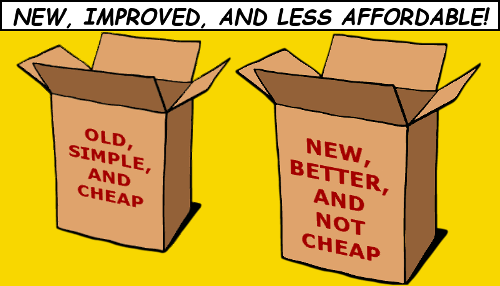Associate Professor at the University of South Carolina.

I am a marketing quant, operations researcher, data scientist, and computer and automation engineer. I develop technologies and methods to collect and analyze unique data sets.
My scientific research explores how social factors and digital technologies interact in consumer markets with the goal of helping businesses balance peformance and consumer well-being.
I teach the methods and management of data science, machine learning, and AI, using best-practices frameworks such as CRISP-DM, MLOps, and LLMOps.
Projects

I study the overall and disparate effects of socioeconomic factors (e.g., income and socioeconomic status) and digital technologies (e.g., algorithms and automation) on consumer behavior (e.g., spending and brand choice), business decisions (e.g., assortment and pricing policies), and market outcomes (e.g., sales and product availability).
My current and recent projects belong to one of the following groups:

Computer algorithms provide great value to businesses and consumers but can also heavily harm their welfare. Even when programmed to help, conceptual or technical deficiencies can cause algorithms to fail or discretely create disparities among consumer groups.
In a first project, I propose an auditing platform to collect data from online retailers and platforms in a way such that the data can be used to assess both whether the algorithms create disparate impact and also whether any disparate impact is associated with business necessities. The application of the platform is illustrated with the case of a leading online retailer, whose algorithms do appear to create disparities in prices although much of those disparities appear to be consistent with business necessities.
The data for this project are available here together with their data dictionary.
In a second project (work in progress), I separate the decisions made by personalization algorithms from the localization decisions of retailers and explore whether the personalization algorithms induce disparities by themselves. Preliminary results from the analysis of a pricing algorithm suggest that, after accounting for costs, the algorithm maximizes profits for the larger groups of minority consumers but fails to accurately infer the price sensitivities of the smaller minority groups.

Changes in the distribution of income are reshaping markets, leading consumers to adjust their consumption according to their new levels of purchasing power. This in turns leads manufacturers and retailers of consumer products to change their products and their assortments.
In a first project, my coauthors and I analyzed seven years of sales of consumer packaged goods across 944 product categories and across the U.S. to find that increasing income inequality leads to smaller assortments in the mainstream grocery channel. We investigate three potential demand explanations and find that the effect is mostly the result of the income losses of the middle-income households (consistent with Engel's Law of quantity).
In a second project (work in progress), my coauthor and I investigate the role of Permanent Income in outcomes of relevance to marketers (e.g., market basket size and composition). We find that using permanent income, as opposed to reported income, allows us to uncover income effects that are significantly larger than those previously documented in the literature.
Collaborators:
Randy E. Bucklin, UCLA Anderson School of Management
Raphael Thomadsen, Olin Business School, Washington University in St. Louis

An important effect of socioeconomic and technological change on consumer markets happens through social processes. Socioeconomic and technological changes transform the way people communicate and how they interact and this impacts their consumption.
In a first project, derived from my doctoral dissertation, I explore how the prices the different products of a brand (i.e., automobile make) affect the sales of all products of the brand. Among other findings, I show that the price of the entry-level product, if set low, helps the sales of the luxury brands but hurts the sales of non-luxury This is likely because low prices harm the prestige of non-luxury brands but make luxury-brands more affordable, and justifies common concerns in the automobile industry.
In a second study, my coauthor and I quantify the wealth-signaling effects of prices, finding that consumers often counter-signal wealth. That is, it is not uncommon for consumers to prefer inexpensive products to avoid claiming high-social status.
In a third project (work in progress), my coauthor and I propose a method to quantify how much households use different product categories to signal wealth using expenditure data.
Collaborators:
Juanjuan Zhang, MIT Sloan

In online markets as well, socioeconomic and technological changes transform what consumers can afford as well as the way people inform their choices.
In the first study of this stream, my coauthor and I look into what determines the profitability of contingent free shipping offerings (free shipping for orders above a certain dollar amount). We find that, among all shipping-related costs, the fixed shipping fees may have the largest impact. In addition, retailer profits are higher the less heterogeneous consumer budgets are.
In a second study, we show extend the results to include inventory decisions and find that: (i) a reduction of the profit margin does not significantly affect the standard deviation of consumers' order sizes but increases the average order size; and (ii) variations in the free-shipping-qualifying order size affect both the average value and the standard deviation of the order sizes.
In a third study, my coauthors and I investigate the effect of consumer interactions on online retailing outcomes through consumer-generated ratings. In particular, we study the value of publishing customer delivery ratings in online market places and find that the most profitable policy can only be publishing true delivery performance or no delivery performance information at all. Publishing consumer-generated ratings tends to be suboptimal. We use a large sample of transactions provided by Cainiao to support our model.
Collaborators:
Mingming Leng, Faculty of Business, Lingnan University
Mahmut Parlar, DeGroote School of Business, McMaster University
Mark Ferguson, Darla Moore School of Business, University of South Carolina







